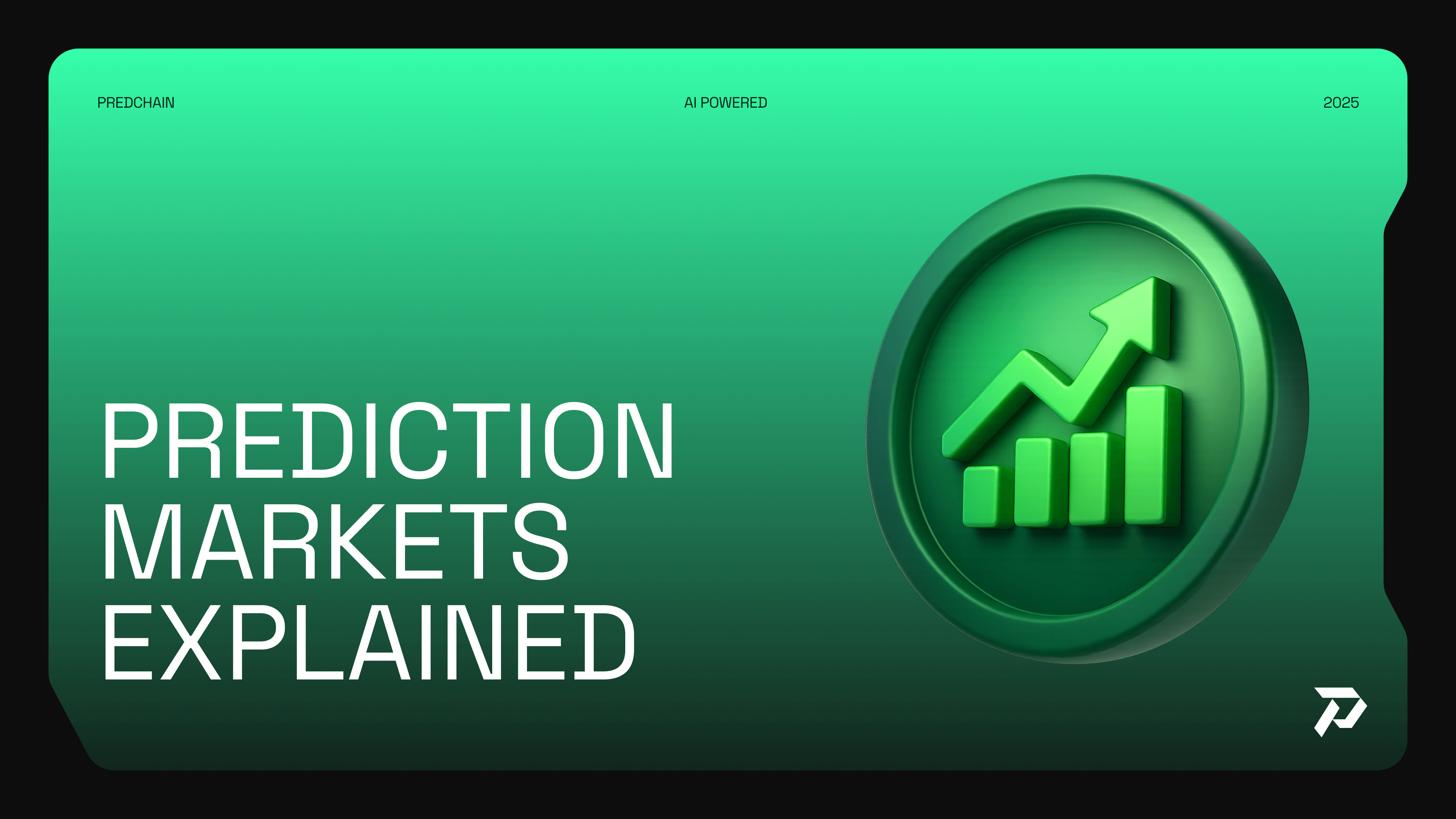What Are Prediction Markets and How Do They Work? A Beginner’s Guide

What is a Prediction Market?
A prediction market is a platform where individuals can bet on the outcomes of future events, with prices reflecting the collective wisdom of participants. In essence, these markets allow users to forecast events such as elections, sports outcomes, or even cryptocurrency price movements. The idea is that markets, when aggregating predictions from many people, are often accurate in predicting future events.
Prediction markets can be decentralized, operating on blockchain technology, which ensures transparency, security, and fairness. These markets allow participants to wager on a wide variety of topics, and winners receive rewards based on the accuracy of their predictions.
How Do Prediction Markets Work?
Prediction markets operate similarly to financial markets but focus on the outcomes of specific events. Participants buy or sell shares in potential outcomes, and the price of these shares reflects the probability of the outcome happening. If you believe an event will happen, you purchase shares for that outcome. If you're correct, your shares become more valuable, and you earn rewards. Here's how it works:
-
Event Creation: A market is created around a specific event, such as "Will Bitcoin price rise above $1,000,000 by December?"
-
Participants Place Bets: Users buy shares in one of the potential outcomes (e.g., "Yes, Bitcoin will rise" or "No, it will not").
-
Price Determination: The price of a share reflects the market's consensus on the likelihood of the event occurring.
-
Event Outcome: Once the event happens, the market resolves. Those who bet on the correct outcome receive rewards.
Key Components of a Prediction Market
-
Participants: Individuals who forecast and place bets on outcomes.
-
Market Creator: The entity or platform that sets up the market and determines the rules.
-
Event Outcomes: The possible results or outcomes that users can bet on.
-
Shares: Units that represent a user's stake in a potential outcome.
-
Liquidity: The ability for participants to easily buy or sell shares in the market.
-
Market Resolution: The process of determining the winner once the event has occurred.
Examples of Prediction Markets
Prediction markets encompass various topics, some of them include:
-
Crypto Prediction Markets: Platforms like Predchain allow users to bet on the price movements of cryptocurrencies, such as Bitcoin, Ethereum, and altcoins.
-
Politics Prediction Markets: Participants forecast election results, like "Will Candidate A win the presidential election?"
-
Sports Prediction Markets: Bettors predict outcomes of games or tournaments, like "Will Team X win the championship?"
-
Weather Prediction Markets: Forecasting the likelihood of specific weather events, like a hurricane making landfall.
Why Use Prediction Markets?
Prediction markets are gaining popularity for a variety of reasons:
-
Accurate Predictions: The collective wisdom of many participants can often predict outcomes more accurately than individual experts.
-
Decentralization: With blockchain-based prediction markets, transparency and fairness are ensured, reducing the chances of manipulation.
-
Financial Opportunities: Prediction markets offer opportunities for users to profit by correctly forecasting events.
-
Real-World Application: From crypto markets to political elections, these platforms have real-world implications, making them a valuable tool for decision-making.
Prediction Markets vs. Traditional Betting
While prediction markets and traditional betting have similarities, they also have key differences:
| Feature | Prediction Markets | Traditional Betting |
|---|---|---|
| Market Structure | Decentralized, based on a wide range of outcomes | Centralized, typically limited to specific events |
| Betting Options | Bet on a variety of topics, including politics, crypto, sports | Limited to specific events, like horse racing or sports |
| Market Resolution | Based on real-world events and community consensus | Based on a fixed outcome (e.g., game result) |
| Liquidity | Can vary, depending on market participation | Often limited to specific betting pools |
| Transparency | High, especially with blockchain-based markets | Often lacks transparency, with central operators controlling results |
Prediction markets are generally more flexible and allow a broader range of betting opportunities. They also offer greater transparency, especially when decentralized technologies like blockchain are involved.
Frequently Asked Questions (FAQ)
Are prediction markets legal?
Yes, prediction markets are legal in many countries, but regulations vary depending on location. Some regions may impose restrictions, particularly on markets involving financial predictions or gambling elements.
How do decentralized prediction markets work?
Decentralized prediction markets operate on blockchain platforms, ensuring transparency and security. These markets remove intermediaries, allowing participants to create and participate in events without relying on a central authority.
Can I participate in crypto prediction markets?
Yes, platforms like Predchain allow users to create crypto events or bet on the outcomes of cryptocurrency price movements and other related events.
What makes prediction markets better than traditional betting?
Prediction markets aggregate information from a diverse group of participants, often leading to more accurate forecasts. Unlike traditional betting, which relies on a single bookmaker or pool, prediction markets offer a more decentralized and transparent approach.
Conclusion
Prediction markets offer a unique and exciting way to forecast the future, whether you're interested in crypto, sports, politics, or weather events. With the rise of decentralized platforms like Predchain, these markets are becoming more accessible, transparent, and secure.
Ready to get started? Explore Predchain today and join the growing community of participants shaping the future with their predictions!